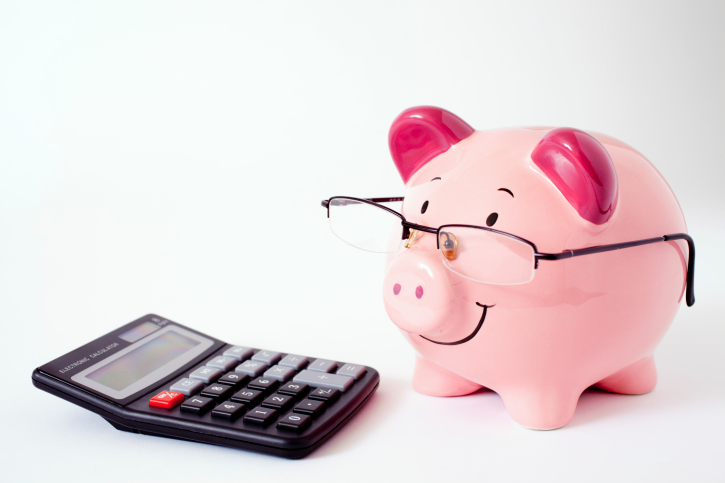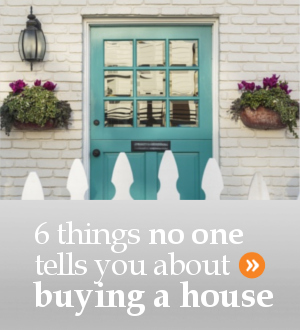Buying a House - 6 Things No One Tells You, Including How Much of a Mortgage You Can Afford
By Julie Jaggernath
Ever wonder what no one tells you about buying a house? Or maybe you’re house-hunting and wondering how much of a mortgage you can afford? The size of your mortgage, in addition to your down payment, will determine what price range you want to be looking in. And there’s no shame in starting small because there are a lot of overlooked expenses for first time home buyers.
Here are 6 things no one tells you about buying a home but which can help you decide how much of a mortgage you can afford:
- Set Your Own Mortgage Limit
- Don’t Start House Hunting Until You’ve Been Pre-Approved or Pre-Qualified
- You Need Down Payment Money Saved, Not Borrowed
- Closing and Moving Costs
- House Envy AKA Keeping Up with the Joneses
- Maintenance and Repairs
1. Set Your Own Mortgage Limit - Lenders Think You Are Richer Than You Really Are
You don’t need to spend all the money that the bank is willing to lend you. In fact, don’t. Lenders decide how much they’ll let you spend based on your gross, before-tax income, however, your budget and household spending is based on your take-home pay (net, after-tax income). This means that they are working with an income figure that is as much as 30% higher than what you really are able to spend. Furthermore, lenders determine how much they’ll lend you without taking all of your specific expenses into account, e.g. daycare, travel, or family commitments, just to name a few.
Of all the house buying tips out there, the best one is that if you’re wondering when it’s a good time to buy a house, it’s when you can truly afford it. If you spend all of what they’re willing to lend you, you could have a very, very tight budget and lifestyle for the foreseeable future. Most people can’t adjust to such a drastic change.
To safeguard your lifestyle and your finances, before you start shopping for a home take the time to outline your budget with a budget and mortgage payment calculator. You’ll see how much you can afford to spend on housing and housing related costs going forward, based on what you’re spending now.
2. Don’t Start House Hunting Until You’ve Been Pre-Approved or Pre-Qualified
If you’ve never applied for a mortgage before, start by getting pre-approved. The process of meeting with the lender and outlining your income, assets and liabilities can be an eye-opening experience which will determine how much of a mortgage you can afford. The lender will also ask you about your down-payment money and give you advice about paying for closing costs (e.g. legal fees to complete a sale).
Any realtor you work with will ask you what price range you can afford. The pre-approval process is intended to let you know how much the banker is willing to lend you. Depending on the lender or mortgage broker, they might let you know what credit score you need to buy a house or if your bad credit will get in the way of qualifying for a mortgage at a reasonable interest rate. Once you know how much you can borrow and how much the payments will be, you can go back to your budget to see if you really want to spend that much. Knowing how much you can afford to spend will also help you to tailor your house hunting efforts.
You are pre-approved up to a certain amount, not for a certain amount.
Keep in mind that just because you’re pre-approved or pre-qualified for a certain amount, it doesn’t mean that you have to spend that much. You can buy a less expensive home and borrow less money, which will protect you financially when mortgage interest rates go up.
3. You Need Down Payment Money Saved, Not Borrowed
When you are saving for a new home, you are required to have at least a 5% down payment saved up. For example, you would need at least $15,000 for a down payment if you want to buy for $300,000. If you have family who is willing to give you the money, you need to get a letter specifying that the funds are a gift. Except in unusual circumstances, you are not allowed to borrow your down payment. If you plan to use money from your RRSP, ensure that your budget allows you to repay your RRSP according to the regulations.
If your down payment is less than 20% of your purchase price, you are required to pay for insurance on your mortgage. Your lender will explain what the premiums are based on how much of a down payment you do have. You are able to include the insurance costs in your mortgage, but that does make them more expensive.
4. Closing and Moving Costs - Legal Fees, Property Tax and Strata Fee Adjustments
It is very wise to budget another 3% - 5% of your purchase price for closing costs, moving and insurance costs. In addition to buying the home, you will have legal fees, property tax and/or strata fee adjustments, house insurance (a condition of your mortgage is that you must have house insurance) and actual costs to move into your new home.
It is up to you to have the money available for when it’s needed, but a lender will also try to offer you a small line of credit for “just in case.” If you think you might need it, it might be wise to accept their offer because a credit line doesn’t cost anything if you don’t use it. In the months after buying a home it can be hard to qualify for additional credit, especially if you’ve maxed out your mortgage amount.
5. House Envy AKA Keeping Up with the Joneses - Decor, Furnishings, Landscaping and Bling for the Driveway
 When you move into a new home, it can be very easy to look around and want to “fit in.” Suddenly your plan to use the furnishings you already have, or to drive your older car, until you can afford to buy new things goes out the window. Before you know it, your line of credit or credit cards are maxed with things like new furniture, decor or landscaping. The first 5 years of owning a home can be much more expensive than most people realize. By buying a less expensive home you are better able to plan how to afford the extras.
When you move into a new home, it can be very easy to look around and want to “fit in.” Suddenly your plan to use the furnishings you already have, or to drive your older car, until you can afford to buy new things goes out the window. Before you know it, your line of credit or credit cards are maxed with things like new furniture, decor or landscaping. The first 5 years of owning a home can be much more expensive than most people realize. By buying a less expensive home you are better able to plan how to afford the extras.
6. Maintenance and Repairs - House, Townhouse or Condo, There’s Always Something to Pay For
One of the joys of home ownership is that you get to maintain your home. However, when something goes wrong or you need an emergency home repair, you can’t just call the landlord. It is crucial to set money aside to pay for unexpected expenses so that you can avoid a financial crisis. Have a separate savings account for home maintenance and repairs and add to it each month.
Keep it Simple When Figuring Out How Much of a Mortgage You Can Afford - Skip the Temptation to Super-Size
In a culture where bigger often means better, when it comes to buying a house and the affordability of your mortgage, bigger can spell trouble, especially when interest rates go up. Resist the temptation to super-size your mortgage and keep payments reasonable. You’ll thank yourself later when something unexpected happens and you’ve got breathing room in your budget to either mitigate a financial crisis or seize an opportunity.
Related Reading:
Get Free Help to Create Your Mortgage & Housing Budget
Protect Yourself from Rising Interest Rates
If you've bought a home before, what advice can you share to help others? If you're buying for the first time, what else would you like to know?

Comments
Nancy Beauchemin replied on Permalink
Advice to someone considering purchasing their first home.
Jeffrey Wallace replied on Permalink
Great article, these tips
Nick Tucker replied on Permalink
Buying A House